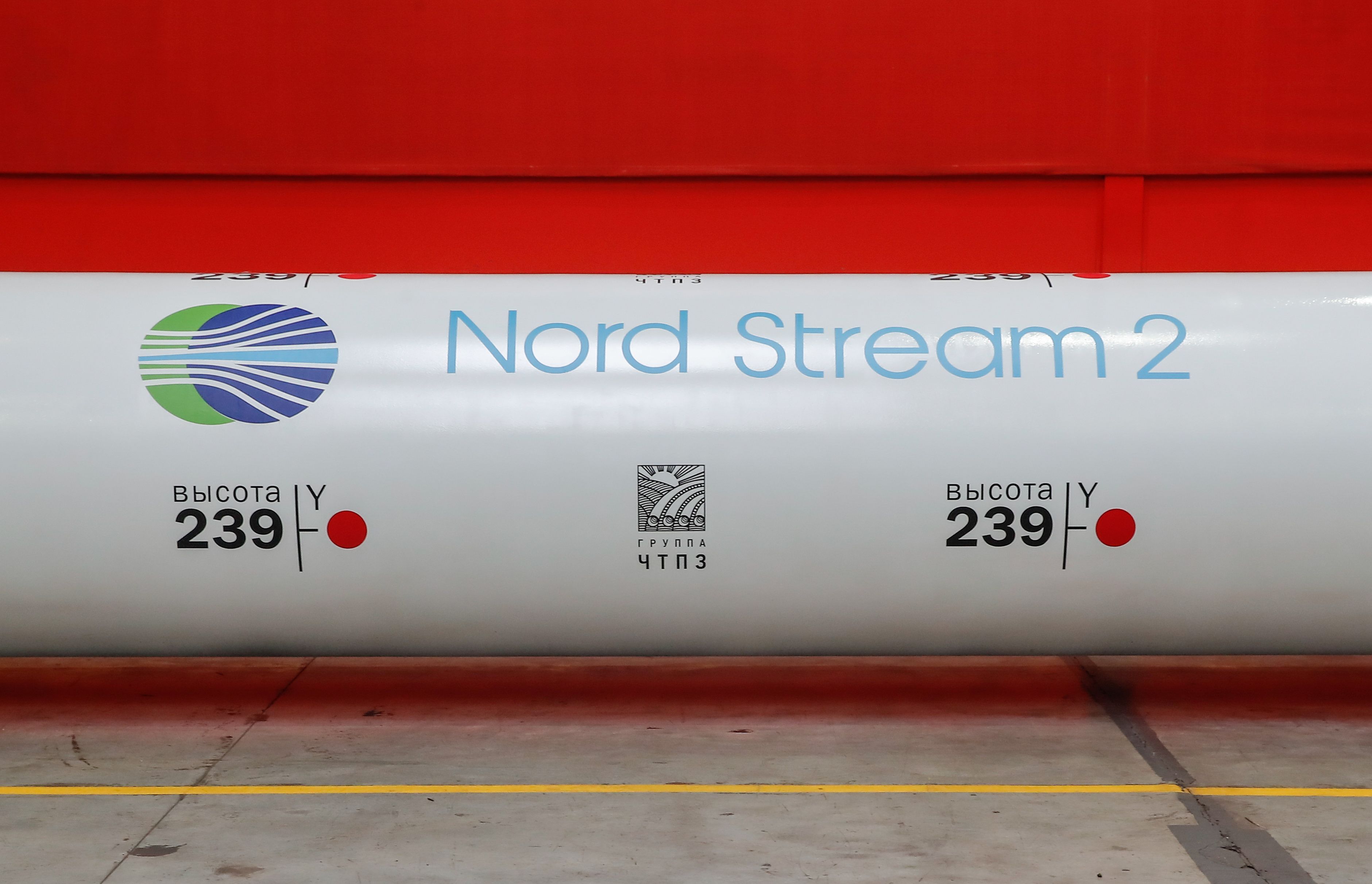Nord Stream 2 and the Biden Presidency

NS2 construction was halted in December 2019 when Allseas (a key contractor with specialised pipe-laying vessels) withdrew from the project, fearing U.S. sanctions. The work on the remaining 100 km or so Danish part were restarted in February 2021 by Russian vessels that assumed the risk of U.S. sanctions. There is also an unfinished German part of NS2 that is around 30 km long. The first of the two strings of NS2 probably will be completed in June or July. However, it is difficult to predict the launch date for NS2 since the U.S. sanctions also target companies providing technical certification, and these are difficult to replace.
U.S. Policy So Far
Despite his administration’s harsh rhetoric about NS2, President Donald Trump did not take decisive steps against it, despite pressure, such as CAATSA legislation, adopted on 2 August 2017. Congress played the leading role, in part by adopting the PEESA legislation in December 2019 that required the U.S. government to sanction companies involved in pipelaying at depths of 30m or deeper (which prompted Allseas to withdraw from the NS2 project) and later pushed for tightening the sanctions. The Trump administration’s most important steps were taken in the second half of 2020. In July, the State Department updated guidance related to some parts of CAATSA, which meant the sanctions would be imposed also on entities that had made agreements on NS2 before the legislation’s adoption. It was a signal from the administration that it would target American allies’ companies if they continued their work on NS2. The change of PEESA guidance in October 2020 was a similar signal: from then on, sanctions were threatened against companies providing goods or services “necessary or essential” for vessels engaged in pipelaying at depths of 30m or deeper. As a result, DNV GL, which was responsible for technical certification, among other things, ceased some services for NS2. It withdrew from the project completely after Congress adopted the PEESA amendments, which expanded the list of activities connected with NS2 construction that would fall under sanctions (the amendments were adopted on 1 January 2021).
Furthermore on 19 January—the day before Trump’s departure from office—the administration imposed sanctions on KVT-RUS, the Russian owner of the Fortuna vessel helping to finish NS2. Germany, which unsuccessfully tried to counteract such moves, hopes that Biden will reverse this policy.
U.S. Policy Towards NS2 under Biden
The new administration is more open to consult on the sanctions and aims to improve relations with Germany. However, it remains critical of NS2 and most likely will not make concessions due in part to the pressure from Congress, Russia’s repressive domestic policy, as well as political differences between Germany and the U.S., for example, on China. The U.S. sanctions legislation allows Congress to exert significant political pressure on the president. According to PEESA, any potential waiver from the mandatory sanctions requires submitting to Congress justification that the waiver is in the national interest. Protecting NS2 against sanctions would therefore require active steps by the president before Congress and without that, activities such as finding a firm to certify NS2 will be difficult. Congress, like the administration, does not want to hit U.S. allies with sanctions, but it doesn’t mean they will give up on trying to stop NS2. For instance, Senator Bob Menendez, a Democrat who chairs the Senate Foreign Relations Committee, opposed imposing sanctions on German officials but not using sanctions to stop NS2. A recent example of the bipartisan consensus on this matter came on 16 February when the administration did not submit a mandatory report on entities engaged in NS2 construction (which, under PEESA, would have meant sanctions on them). Members of both parties in Congress called on the administration to brief them on the planned sanctions and also any proposals offered to the administration to weaken the sanctions, which in practice meant any offers from Germany on this matter. The administration eventually submitted the report on 19 February, but it identified only KVT-RUS and the Fortuna vessel, on which the Trump administration had already imposed the sanctions. Congress criticised Biden’s approach, but the move demonstrates that the administration may be more open to talks with Germany, and for that reason does not want to impose new NS2 sanctions.
The activities against NS2 could intensify, however, as the U.S. sets the goal of punishing Russia for human rights violations, including the attempted murder of Alexei Navalny by the FSB and for sentencing him to prison, as well as Russia’s confrontational foreign policy. For these reasons, Congress has supported new sanctions against Russia. Although unrelated to NS2, they will make weakening the existing sanctions even more difficult politically.
Germany could have improved its negotiating position with the Americans by supporting their policy on China, which is seen by the U.S. as one of its biggest threats. However, the German government, over the objections from the U.S. and some EU countries, pushed through the EU-China Investment Agreement. Germany’s actions also might be influenced or even mobilised by the upcoming Bundestag elections in September, in which the Greens might form a ruling coalition with CDU/CSU. That mix will most likely complicate the plans of NS2 supporters: the Greens are critical of the pipeline and if they join the coalition it might also mean new disputes with the U.S. over e.g. defence policy. According to media reports, Germany is trying to convince the U.S. to drop the sanctions by offering guarantees to counter the negative impacts of the NS2. These would include a mechanism protecting Ukraine against losing gas transit to NS2 (depriving Ukraine of gas transit is Russia’s long-term goal). In case Ukrainian route is cut off, the mechanism would shut down or reduce imports via NS2, discouraging Russia from such actions. The German government does not want, however, to create an “automatic” mechanism (preferring one that lets Germany decide). These issues comprise a good illustration of Germany’s approach towards NS2: the country cannot reliably guarantee that NS2 will not be used by Russia to achieve its policy goals.
Conclusions and Perspectives
Even if NS2 construction is not disrupted further, its launch will face problems because of the U.S. sanctions. Therefore, in the coming months German diplomacy will focus its efforts on countering the sanctions, with the goal of not only starting NS2 as soon as possible but also in view of the upcoming elections, after which the Greens might join the ruling coalition.
The supposed mechanism protecting Ukraine will be difficult to enact, and regardless of whether it is automatic or not, it will not address the threats related to NS2, as emphasised by Poland and others. The non-automatic mechanism (in reality a political decision) will not prevent Russia from reducing or halting gas transit via Ukraine (probably citing alleged technical reasons). In such a scenario, German decision-makers will be unlikely to be willing to reduce gas imports to the EU via NS2, especially if it happens during the winter, or even acknowledge that Russia’s actions are politically motivated. On the other hand, an automatic mechanism could be legally challenged by Gazprom as violating EU law. U.S. consent for such a mechanism still would not protect Ukraine from losing transit to NS2.
The determination of the German government, as well as suggestions by officials that NS2 will contribute to climate policy (or is part of wider political engagement with Russia), only confirms the concerns of countries like Poland about the pipeline’s negative long-term impact on the EU and NATO. Due to the predicted consequences of NS2 on both of them, it should be the subject of wide consultations and debate, which for long have been denied by Germany. Including Poland and other countries in the region in the U.S.-Germany talks on NS2 could in fact strengthen the trans-Atlantic bond and trust between the allies.


